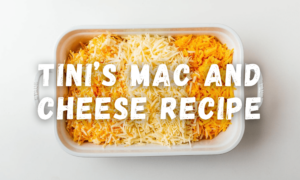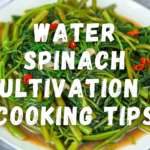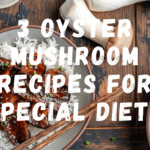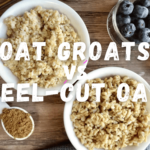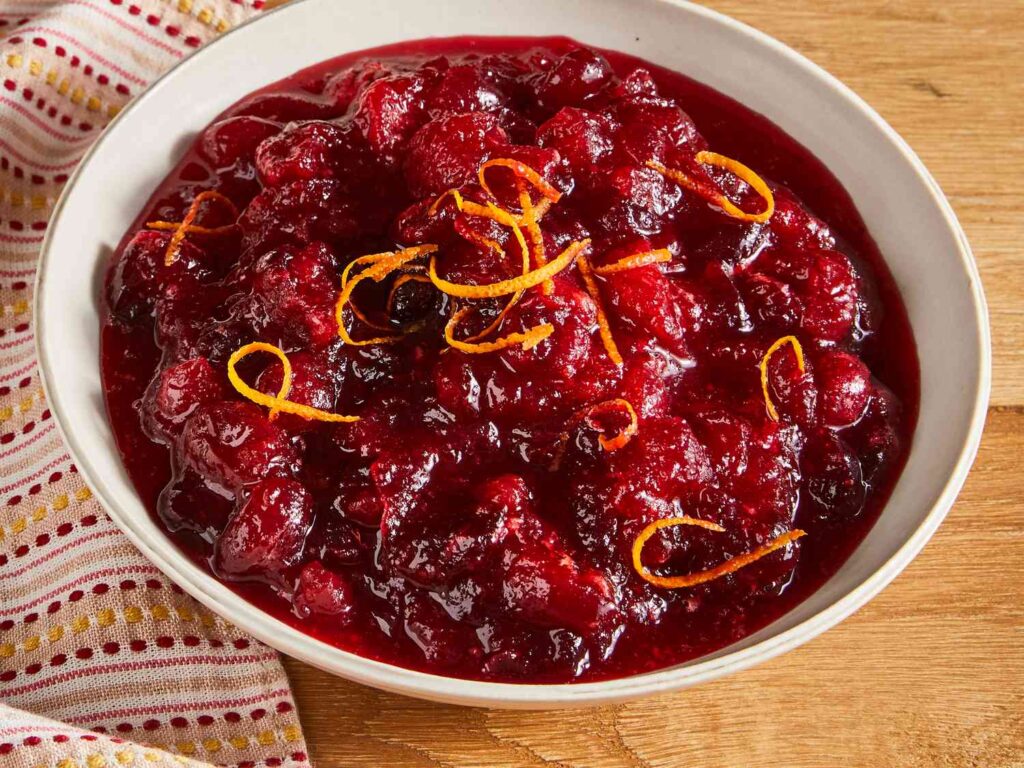
Cranberry sauce has been a beloved cornerstone of Thanksgiving celebrations for generations. This classic cranberry sauce recipe is more than just a side dish – it’s a culinary tradition that brings families together. The vibrant red condiment has become so integral to the holiday feast that many people consider their Thanksgiving meal incomplete without a generous helping of cranberry sauce.
The origins of this recipe can be traced back to Native American cultures, who first used cranberries in their cooking and recognized the fruit’s unique flavor and preservation qualities. Early European settlers quickly adopted the recipe, transforming it into the sweet and tangy side dish we know today.
Beyond its delicious taste, a homemade cranberry sauce recipe offers impressive nutritional benefits. Cranberries are packed with antioxidants, vitamins, and minerals that contribute to overall health:
- Rich in Vitamin C, supporting immune function
- Contains proanthocyanidins that may help prevent urinary tract infections
- Low in calories
- High in fiber
- Potential anti-inflammatory properties
A typical cranberry sauce recipe provides these health benefits while adding a burst of flavor to your holiday meal. Whether you’re using a traditional or gourmet cranberry sauce recipe, you’re not just serving a delicious side dish, but also a nutritional powerhouse.
Crafting the Perfect Cranberry Sauce Recipe: Ingredients Breakdown
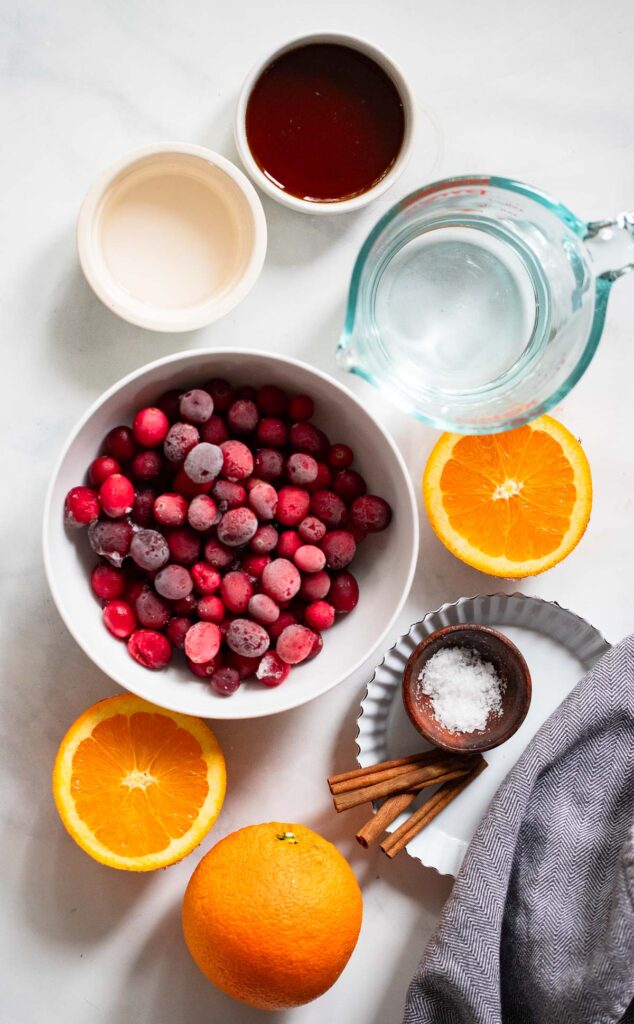
Must-Have Ingredients for Traditional Cranberry Sauce Recipe
Creating an authentic cranberry sauce recipe requires a few essential ingredients that form the foundation of this beloved holiday condiment. A classic recipe typically calls for:
These ingredients can elevate a simple cranberry sauce to new heights
- Fresh Cranberries
12 oz bag of whole, fresh cranberries
Serves as the primary ingredient in any cranberry sauce recipe
Look for plump, firm berries with a deep red color
- Granulated Sugar
Primary sweetener in most cranberry sauce recipes
Typically 1 cup of sugar per 12 oz of cranberries
Balances the natural tartness of the cranberries
- Water or Liquid
1 cup of water or other liquid
Helps create the perfect consistency for your sauce
Can be substituted with orange juice for added flavor
- Optional Flavor Enhancers
Orange zest
Cinnamon stick
Pinch of salt
Sweetener Alternatives: Natural and Artificial Options for Cranberry Sauce Recipe

Modern cranberry sauce recipes offer numerous sweetener alternatives to traditional granulated sugar:
Natural Sweeteners:
- Honey: Adds complexity and natural sweetness
- Maple Syrup: Provides a rich, deep flavor to your cranberry sauce recipe
- Agave Nectar: Offers a milder sweetness
- Coconut Sugar: Brings a caramel-like undertone
Artificial Sweeteners:
- Stevia: Zero-calorie option for low-sugar cranberry sauce recipes
- Erythritol: Low-calorie alternative with minimal aftertaste
- Monk Fruit Sweetener: Natural, zero-calorie option
Pro Tip: When substituting sweeteners in your cranberry sauce recipe, adjust quantities as different sweeteners have varying levels of sweetness.
Fresh vs. Frozen Cranberries: Pros and Cons for Your Cranberry Sauce Recipe

Choosing between fresh and frozen cranberries can impact your cranberry sauce recipe:
Fresh Cranberries Pros:
- Optimal texture
- Brightest flavor
- Available during peak season (October-December)
- Best for immediate use
Cons:
- More expensive
- Limited availability
- Shorter shelf life
Frozen Cranberries Pros:
- Available year-round
- More affordable
- Convenient storage
- Consistent quality
Cons:
- Slightly softer texture
- May release more liquid when cooking
Recommendation: While both options work, fresh cranberries are typically preferred for the most vibrant and flavorful cranberry sauce recipe. However, frozen cranberries are an excellent alternative when fresh are not available.
Key Considerations:
- Always rinse cranberries before use
- Remove any soft or discolored berries
- For frozen cranberries, do not thaw before cooking in your sauce recipe
By understanding these ingredient nuances, you’ll be well-equipped to create a perfect recipe that will impress your family and friends during the holiday season.
Step-by-Step Homemade Cranberry Sauce Recipe: A Culinary Journey
Preparing the perfect cranberry sauce recipe requires a few key pieces of some careful preparation:
- Gather all ingredients for your cranberry sauce recipe
- Wash fresh cranberries thoroughly
- Sort through cranberries, discarding any soft or discolored berries
- Measure ingredients precisely
- Have a clean storage container ready for cooling and storing
Classic Cranberry Sauce Cooking Method
Ingredients for Classic Cranberry Sauce:
- 12 oz fresh cranberries
- 1 cup granulated sugar
- 1 cup water
Cooking Instructions:
1. Combine water and sugar in a medium saucepan
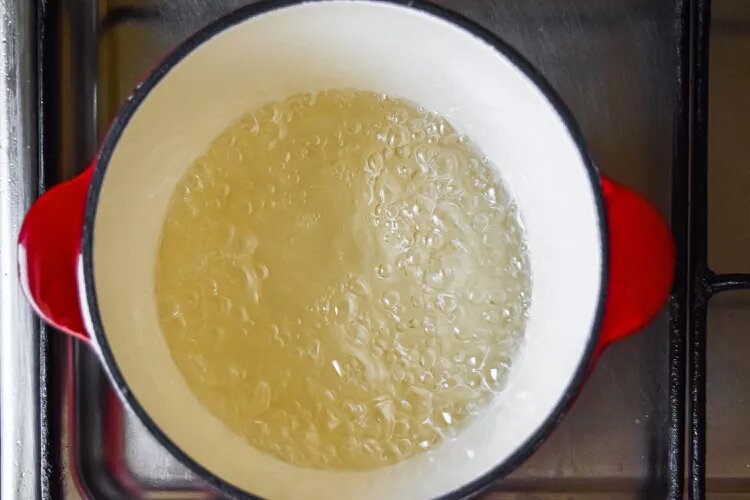
2. Heat over medium-high heat, stirring until sugar dissolves completely
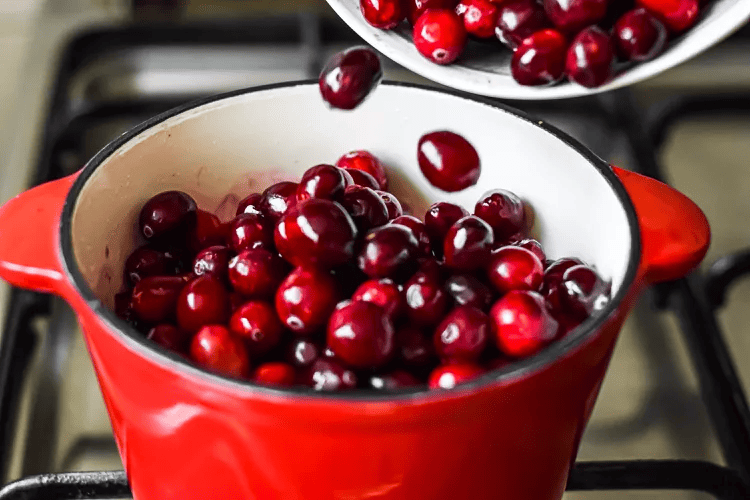
3. Add cranberries to the sugar syrup
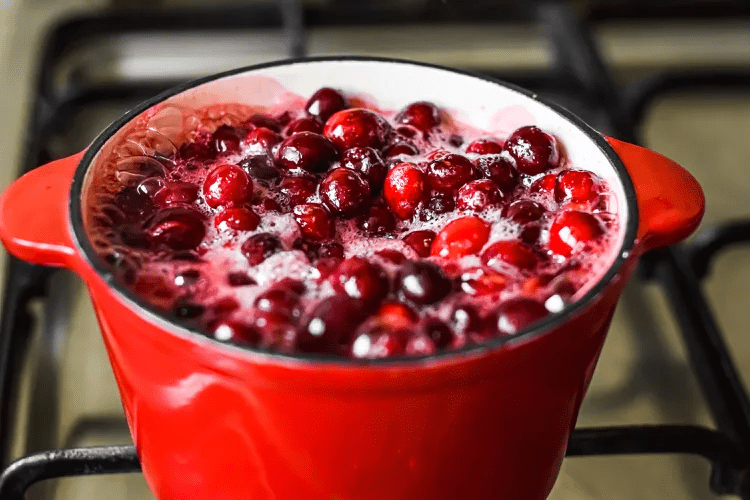
4. Bring mixture to a boil, then reduce heat to medium-low
5. Simmer for 10-12 minutes, stirring occasionally
6. Listen for a popping sound as cranberries burst (this is normal!)
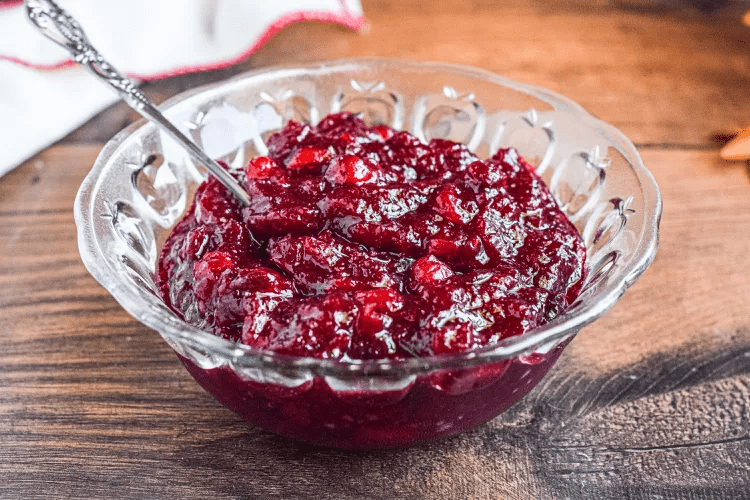
7. Remove from heat when most cranberries have burst and sauce thickens
Consistency Secrets: Achieving the Perfect Texture in Your Cranberry Sauce Recipe
Texture Tips:
- Cook until cranberries have burst but not completely disintegrated
- Avoid overcooking, which can make sauce too mushy
- Let sauce cool at room temperature for natural thickening
- Sauce will continue to set as it cools
Consistency Troubleshooting:
Ideal consistency: Slightly loose when warm, gel-like when chilled
Too thin: Continue cooking for 2-3 more minutes
Too thick: Add a small amount of water or orange juice
Innovative Recipes Using Leftover Cranberry Sauce
Ever wondered what to do with that extra cranberry sauce after the holiday meal? Your homemade cranberry sauce recipe is more versatile than you might think. Transform your breakfast by swirling it into yogurt or spreading it on toast. For bakers, it’s a secret weapon in thumbprint cookies, muffins, and coffee cakes, adding a tangy twist to sweet treats.
Savory dishes get an upgrade too. Use it as a glaze for roasted meats, a sandwich spread, or a unique salad dressing component. The possibilities are endless when you start thinking beyond the traditional serving method.
Breakfast Creations:
- Swirl into yogurt or oatmeal
- Spread on morning toast or bagels
- Mix into pancake or waffle batter
- Top breakfast smoothie bowls
Baking Innovations:
- Cranberry sauce thumbprint cookies
- Cranberry sauce swirl coffee cake
- Cranberry sauce muffins
- Use as filling for pastries and turnovers
Savory Dish Enhancements:
- Glaze for roasted chicken or pork
- Sandwich spread
- Topping for grilled cheese
- Mix into salad dressings
- Complement cheese boards
Proper Storage and Preservation Techniques
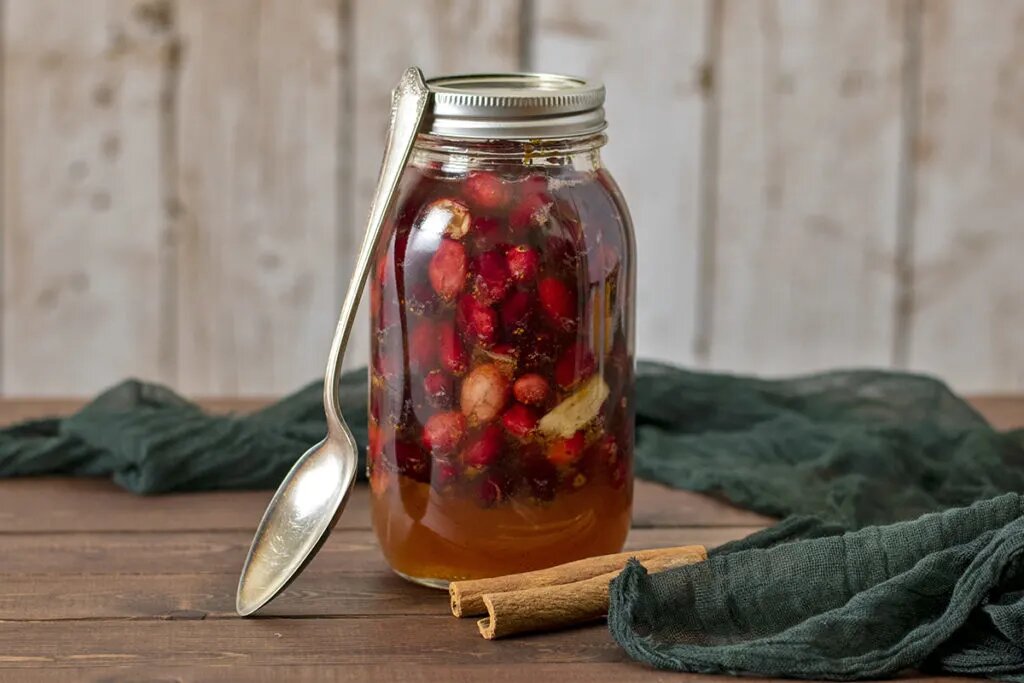
Storing your cranberry sauce is simple. Refrigerate in an airtight container for up to two weeks, or freeze for up to three months. For long-term preservation, consider canning following USDA guidelines. Just remember to use clean utensils and store away from strong-smelling foods.
A great recipe is more than a holiday side dish – it’s a year-round culinary companion that can transform ordinary meals into something special. Get creative and let your cranberry sauce shine!
FAQs
How long does it take to make cranberry sauce?
It typically takes 15-20 minutes to cook cranberry sauce from scratch, making it a quick and easy addition to any meal.
How long does cranberry sauce last in the refrigerator?
Homemade cranberry sauce can last up to 7-10 days when stored in an airtight container in the refrigerator.
How can I tell if my cranberry sauce has gone bad?
Signs of spoilage include a sour smell, discoloration, or mold. If you notice any of these, discard the sauce immediately.
Can I make cranberry sauce without added sugar?
Yes! You can use natural sweeteners like maple syrup, agave, or even orange juice to add sweetness without refined sugar.



